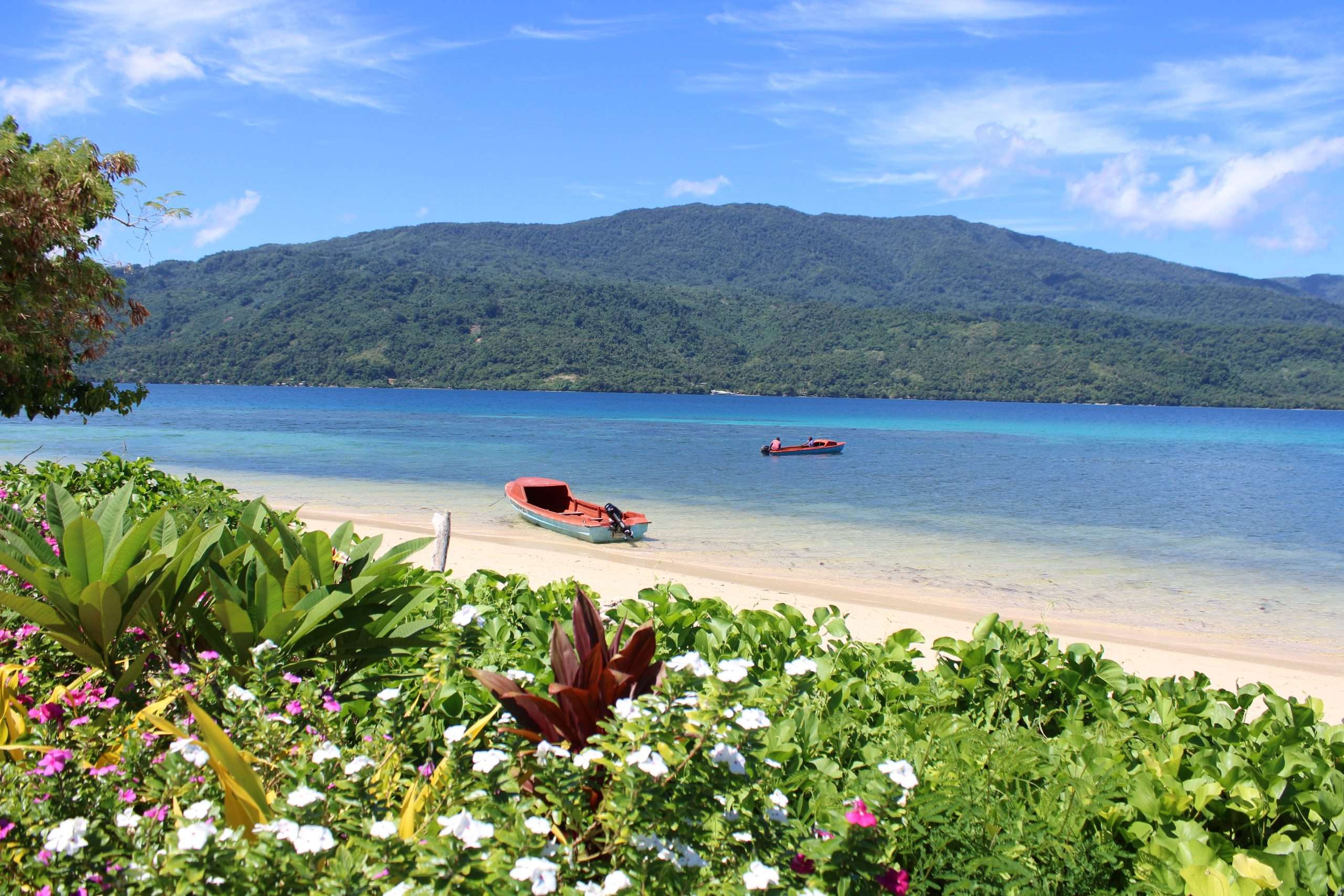
If you are a foreign investor looking for a tourism opportunity in the Solomon Islands, odds are your first call to the government will be with Sially Ngumi Turanga.
“I am personally a very shy person but over the years I’ve developed the courage to be the first point of contact for tourism investors in our country from all around the world,” Sially explains.
Sially is the Deputy Director of InvestSolomons in the Ministry of Commerce, Industries, Labour & Immigration, a government agency that facilitates foreign investment into the Solomon Islands and is a key partner in the Solomon Islands Threshold Program (SITHP). SITHP, managed by DT Global, is a partnership agreement between the Government of the Solomon Islands and the Millennium Challenge Corporation.
It could have been a very different career path for Sially, who considered following her mother, a nurse from Isabel Province and her father, a Dentist from Western Province, into the medical profession.
“Medicine wasn’t my destiny. My first taste of tourism was working at the Solomon Islands Visitors Centre, which allowed me to attain a degree with a double major, in Public Administration and Tourism, and after that into hotels.”
The Solomon Islands in the late 1990s and early 2000s experienced a severe period of civil unrest known as ‘the tensions’, and the nascent tourism industry was one casualty of the strife. But Sially saw in the tourism sector, which was again stymied by the covid pandemic more recently, and still sees, an emerging promise brimming with possibility.
Before the pandemic, tourism accounted for 10.5% of the country’s Gross Domestic Product, generating revenue of USD$132 million, and growing.
The impacts of the unexpected shocks and the unrealised tourism potential of this thousand-island nation led to a formal agreement in 2022 between the US Government’s Millennium Challenge Corporation and the Solomon Islands Government, to work together in the tourism sector. This included finding sites, increasing investments, and identifying high-impact reforms so that tourism could make a much higher contribution to the country’s bottom line and overall economic wellbeing.
Sially is making a major contribution to that work in her role as Co-Chair of the Accessing Land for Tourism Investment Facilitation (ALTIF) Task Force under the SITHP, where she leads the investment reform team.
“My role on the Task Force is to identify and analyse barriers and find ways to make it easier for genuine investors to come to our country as their preferred tourism investment destination.”
“I want investors to participate in sectors that can broaden our economic base. The type of approach being used [the Facilitated Governance Reform model, which finds local solutions to local problems] is new and interesting and it engages all the Technical Officers in our respective fields, and we learn so much from each other. I want to be part of the team that achieves major changes for our country in terms of investments” she said.
When asked about women’s inclusion in the tourism industry, Sially says simply: “I believe the term inclusion means showing other women you care and respect them and together we build each other up in an environment which is not fair at times.”
Sially also draws a distinction between her personal life and work life.
“My Husband is very supportive and is proud of how I’ve progressed at work over the years. My Brothers look to me not only as their sister but have great respect for my work. In our matrilineal system, females have the upper hand in terms of the land tenure system, thus my brothers also respect that status.”
“In our office, I am working with all men, and they are very supportive as well, because we work together, value each other’s tasks and work towards a common goal,” she added.
As a leader in her field, Sially appeals to other women to be more supportive of each other.
“Before they act, women do consider the barriers (to full participation in the labour force), and women are more reserved. We do not have a broader pool of women or a women’s network; women excelling in their field and supporting others to do the same. Sometimes, women ourselves do not support each other, we do not want to see others progress and this is evident at times in the Solomon Islands.”
“However, we are a developing country, there is more focus towards females, and females are working their way up. I am so privileged to share my story and hopefully empower other women to face challenges,” Sially concluded.